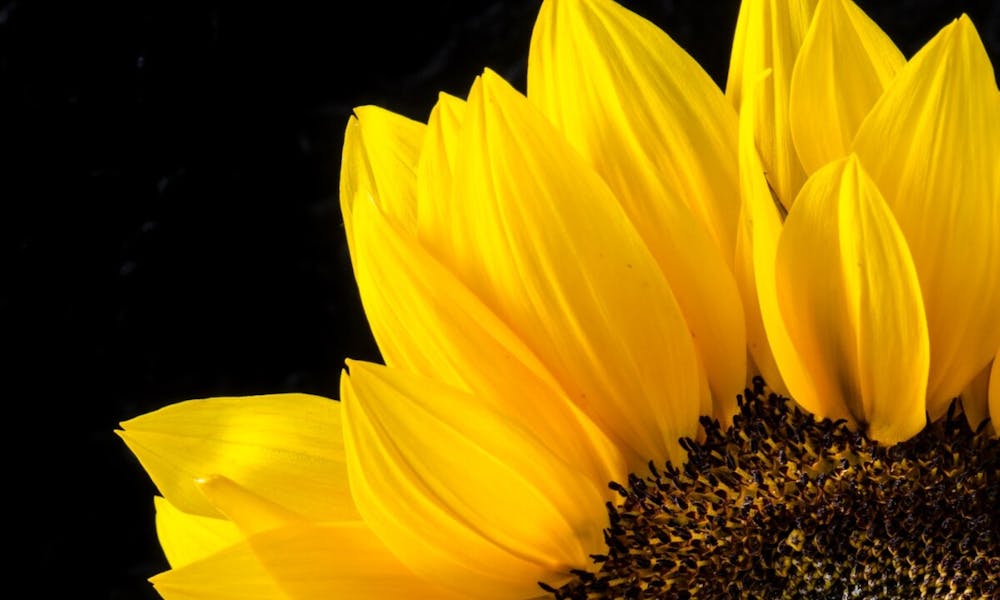Sunflowers, with their vibrant yellow petals and imposing stature, have long been admired for their beauty and ability to turn towards the sun. Beyond their visual appeal, sunflowers hold deep symbolism and meaning across cultures and history. In this article, we will delve into the significance of sunflowers, exploring their symbolism, interpretations, and cultural associations. From personal growth to happiness, we will uncover the multifaceted nature of what a sunflower symbolizes, providing insights that will enhance your appreciation of these magnificent flowers.
The Symbolism of Sunflowers: A Glimpse of Happiness and Positivity
Sunflowers are renowned for their association with happiness, positivity, and the sun itself. Here are some key symbols and interpretations attributed to sunflowers:
- Sun and Light: Sunflowers have an undeniable connection to the sun, as their name suggests. Just as they turn their faces towards the sun, sunflowers symbolize warmth, light, and the life-giving energy of the sun. They represent a positive outlook on life, embracing brightness and radiance.
- Happiness and Joy: Sunflowers are often seen as symbols of happiness and joy. Their bright and cheerful appearance uplifts the spirits and brings a sense of delight. Gifting sunflowers can convey sentiments of happiness and brighten someone’s day.
- Positivity and Optimism: Sunflowers are known for their ability to follow the sun’s movement across the sky, a behavior called heliotropism. This unique characteristic symbolizes an optimistic outlook, adaptability, and the ability to find the positive aspects even in challenging situations.
Cultural Associations and Symbolic Meanings
Throughout history and across cultures, sunflowers have held various symbolic meanings and cultural associations. Here are a few examples:
Native American Culture
In Native American cultures, sunflowers hold deep spiritual and cultural significance. They are seen as symbols of bounty, fertility, and protection. The tall stature and large yellow blooms of sunflowers represent strength, resilience, and a connection to the earth’s abundance.
Chinese Culture
In Chinese culture, sunflowers symbolize good luck, longevity, and fortune. They are associated with positive growth, success, and a bright future. Sunflowers are often used in festive celebrations and auspicious occasions to invoke prosperity and happiness.
Victorian Era Language of Flowers
During the Victorian era, when the exchange of flowers carried deep symbolic meanings, sunflowers were associated with loyalty and adoration. They conveyed a message of unwavering devotion and steadfastness in love and friendships.
Additional Interpretations and Symbolic Associations
While happiness, positivity, and cultural references are the primary symbolic meanings of sunflowers, they can hold additional interpretations and associations. Here are a few examples:
- Nurturing and Motherhood: Sunflowers’ seeds, which develop in the center of the flower, symbolize fertility, growth, and nurturing. This association can extend to representations of motherhood and the nurturing qualities of individuals.
- Faithfulness and Loyalty: Sunflowers’ unwavering commitment to facing the sun throughout the day represents faithfulness and loyalty. They can symbolize steadfastness in relationships and a commitment to staying true to one’s values.
- Growth and Transformation: Sunflowers are emblematic of personal growth and transformation. From their small seeds to towering stalks and vibrant blooms, they remind us of the potential for growth, resilience, and the beauty that can arise from challenging circumstances.
Sunflowers in Art, Literature, and Popular Culture
Sunflowers have inspired numerous works of art, literature, and popular culture. One of the most renowned examples is Vincent van Gogh’s series of sunflower paintings, where he depicted the flowers in vibrant hues, capturing their essence and symbolism. These paintings have become iconic representations of sunflowers in the art world.
In literature, sunflowers have been featured as symbols of hope, vitality, and beauty. They often appear as metaphors for personal growth, inner strength, and finding light in dark times. From novels to poems, sunflowers continue to inspire writers and readers alike.
In popular culture, sunflowers have become synonymous with positivity and happiness. They are often used as decorative elements in celebrations, home decor, and fashion accessories, spreading joy and a sense of optimism.
Conclusion
Sunflowers represent far more than just a visually striking flower. They encapsulate the essence of happiness, positivity, and the life-giving power of the sun. Their symbolism extends to cultural associations, representing abundance, fertility, and luck in different cultures.
As you admire the radiant beauty of a sunflower, take a moment to reflect on the meanings it holds. From happiness and joy to personal growth and resilience, sunflowers serve as reminders of the potential for positivity and light in our lives. Embrace the symbolism of a sunflower, and let its vibrant presence inspire you to cultivate happiness, spread positivity, and bask in the warmth of life’s sunlit moments.
